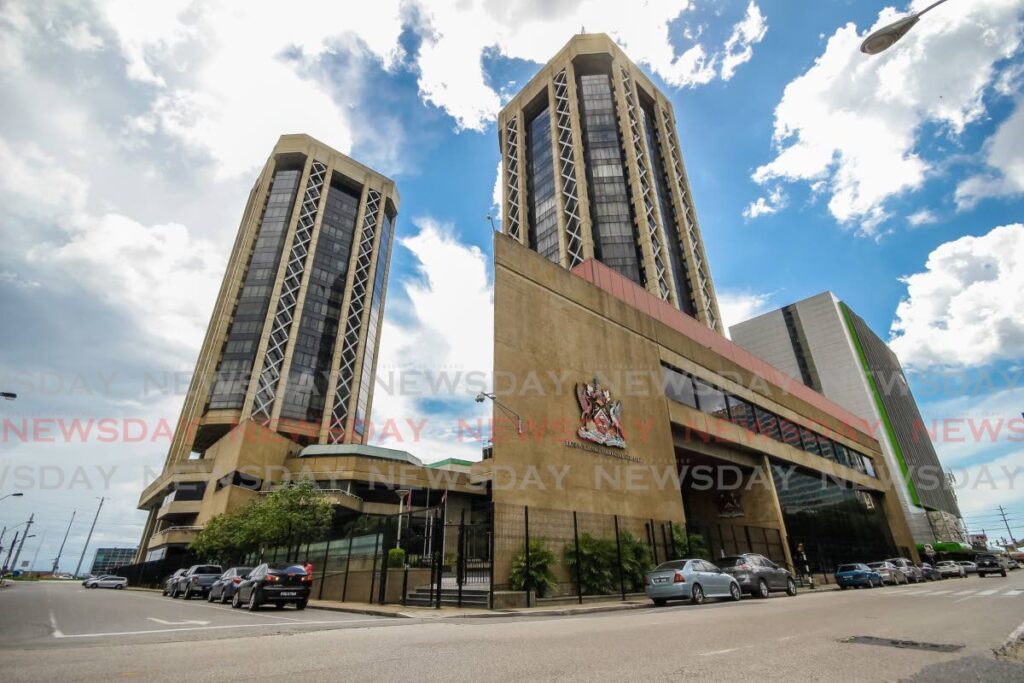Cryptocurrency isn’t for everyone

CRYPTOCURRENCY, in one form or another, has been around since 2009, and is quickly growing into an alternative to fiat currency – government-issued currency not backed by a commodity like gold or oil – for many people around the world.
Countries like Brazil, Mexico and other developing countries have shown high adoption rates, and banks dealing in large part with cryptocurrency have seen some measures of success in some instances, but have fallen victim to its volatility in others.
On the other hand, traditional fiat currency has also seen its own evolutions through digitisation. Digitisation in banks has resulted in online and cashless payment systems, digital wallets and digitisation of securities. Through digitising their operations and resources, banks have made strides in financial inclusion that were not possible before.
In TT, while cryptocurrency has seen growing interest, the legislative and regulatory framework that allows for its safe and efficient use has not yet been developed. On Tuesday regulators, the TT Securities Exchange Commission (TTSEC) and the Central Bank held discussions with the public on cryptocurrency, with the intention of getting feedback to develop a regulatory framework. But this begs the question: with the developments being made in traditional banking, which already has its own checks and balances, what does cryptocurrency do for the public that the new, digitised banking industry isn’t doing already?
Speaking to Ian T Alleyne, CEO and founder of Paywise, one of TT’s Central Bank-approved e-money issuers after the crypto conversation, Business Day was told with the current frameworks in place for both cryptocurrency and fiat currency, crypto is not operating at its fullest potential, and therefore, digital fiat currencies are closer to providing people with the services they need.
Crypto isn’t for everyone
Alleyne said there is less regulatory pushback for traditional fiat currency, which makes it more readily accessible.
“It builds on the old banking financial system that we have right now, so that is quite pervasive,” he said. “You will find that digital currency has easier dissemination because of that. Cryptocurrency has an entire alternative system that has to be built out.”
He said several conditions need to be met to make cryptocurrency more reachable to the man on the street.
For businesses Alleyne said there isn’t enough depth in the market at this point to supply businesses with the amount of money needed for trade and export.
“Because you are talking about hundreds of millions of dollars in terms of foreign exchange,” he said. “There are some informal sources, but even those may not be able to supply huge quantities on a consistent basis.
“For cryptocurrency to serve as an alternative, you need to have something like a cryptocurrency exchange that has depth and where people can go there and buy the cryptocurrency for trade.”
So, if it isn’t for businesses and it isn’t for individuals, who does cryptocurrency actually benefit?
Alleyne said in TT, cryptocurrency is more for enthusiasts and entrepreneurs with an adventurous spirit.
“It is for people who are able to navigate the ability to access cryptocurrency, and then the knowhow to go about obtaining it.
“The ways of doing that are not straightforward. There are a lot of nuances there. So you have to be au courant with the crypto space and more familiar with different access points.
"But once I have someone of like mind and like appreciation of cryptocurrency, we can transact in crypto easily.”
He said once people are in the crypto space, they use cryptocurrency for several different purposes including making payments, trading and in many cases as a security.
“Some people may have belief in the value of cryptocurrency and hold it for a few years to appreciate.”
Central Bank governor Dr Alvin Hillaire also recognised the need for a structured framework for cryptocurrency during the discussion at the Central Bank Auditorium.
“If you have a solid infrastructure for communication and a solid framework that is established for registering and validating payments, then that is all you need. As time goes along it will become more user-friendly. But I believe that people will want the education and the support of a central authority to be able to say that you can do this, but if you have problems you can come to us for redress.”
Alleyne told Business Day for cryptocurrency to become more user-friendly in TT there needs to be more accessibility.
“There needs to be ease of access – you need what is called an on and off ramp,” he said. “That is typically a crypto exchange that facilitates converting local currency into cryptocurrency and back. So people can take their money and buy cryptocurrency. Whatever they do after that is up to them.
"If there were easy access to the US dollar there would not be a black market. People would just go to the bank or whatever source and buy US dollars. It's similar with cryptocurrency. Once you have ease of access then people would be more able to participate.”
Making banks better
Hillaire, in a presentation during the conversations on crypto highlighted benefits to cryptocurrency which included an opportunity to enhance financial inclusion, transaction speed, cost-effective transaction, greater accessibility and decentralization.
But he said later the Central Bank is working to improve banking in TT, which may address some of the issues that makes crypto so attractive.

“If you look at the purported advantages you may think maybe there are other mechanisms that are already sorting these things out,” he said. “If the problem is speed of transactions then you payment systems may need some work. If it takes a lot of time and effort from one country to another because the system is clogged up maybe the payment systems need to be sorted out. If the problem is cost then maybe what we need is more competition.”
“If the issue is decentralisation because you don’t trust the banks and they are pumping money and devaluing the value of the currency, either local or foreign, you may need to have a strong monitoring policy framework, or fiscal support that leads to macroeconomic balance.”
He said the Central Bank is working on improving payment systems and getting better regulations and laws to provide better solutions to the private sector.
“Sometimes by getting things going, you will find you may not need to get into crypto.”
He added that the Central Bank also looked into developing a cryptocurrency of its own.
“Some countries are embarking on it and some in the Caribbean. We have been studying it for quite some time with the support from the IMF and other organisations. We are not getting into that as yet, we are working on improving our systems, getting our laws organised and so on to have private-sector solutions.”
Hillaire said internationally, agencies are just beginning to develop a harmonised framework to regulate the industry worldwide.
Repeating statements from the IMF in 2022, he said, “It is only in the past few years that crypto assets have moved from being niche products in search of a purpose to having a more mainstream presence as speculated assets, hedges against weak currencies and potential payments instruments.”
He said there is a concern that if cryptocurrency does not have a harmonised framework, fragmented policy frameworks could lead to what is called a “race to the bottom.”
“If you do not have some sort of harmonisations you will find that enterprises will go to areas with the lowest regulatory arbitrage and then things will get out of hand.”
Education, collaboration is key
For people interested in using cryptocurrency, the panellists on Tuesday said education is necessary.
Lystra Lucillio, acting CEO of the TTSEC, said for people looking into using cryptocurrency as a security, it is imperative that they do their own research and look into the currencies in which they plan to invest.
“As a regulator, we cannot be everywhere at the same time. We do not know what might be happening in certain areas. We have reports coming in to us, but we need investors to also play their role,” she said. “If you are going to get involved in some investment, what exactly do you know about the investment, the parties you are getting involved in, what contracts do you have to agree to?
“People get lured by a promise of very high returns and they won’t even ask those questions like: 'How will you generate those returns?' Then they go running into the investment and they go on their app and see that you have numbers with a whole set of zeros, but then you can’t get access to it.”
She said for the TTSEC one of the main focuses is educating and protecting investors. She said it has has an investor protection app and people with concerns about investments can make a report directly to the app
“It’s going to be a collaboration between the investor and the regulators.” she said.
Zed Labs founder and CEO Mark Pereira said collaboration will also be key for protection
“With the invention of the internet, information flows freely in and out of our country, but now the internet has a native currency. It doesn’t require AML or CFT to get access, you simply download an app from a website and you have access to a global financial system. We need to be able to stand on our own two feet in the face of open exchange,” he said.

Comments
"Cryptocurrency isn’t for everyone"